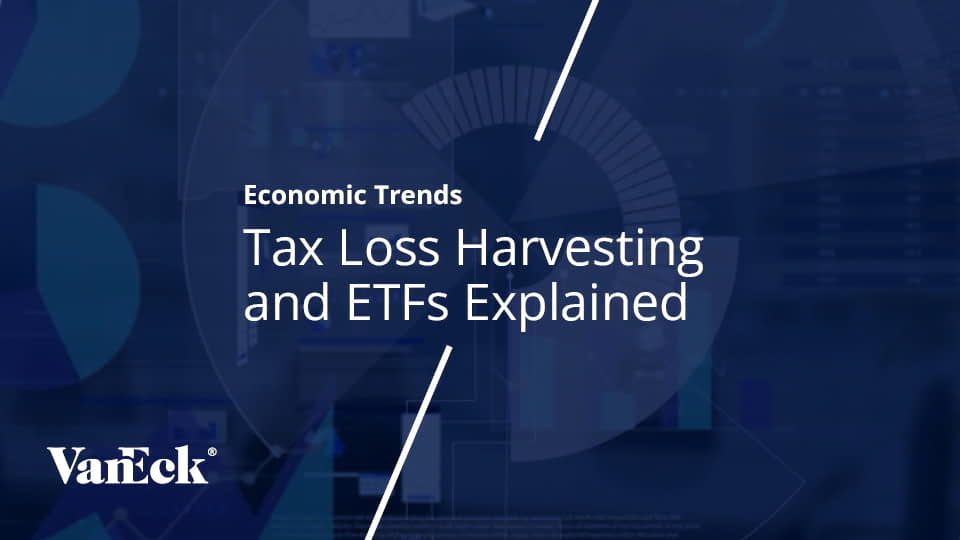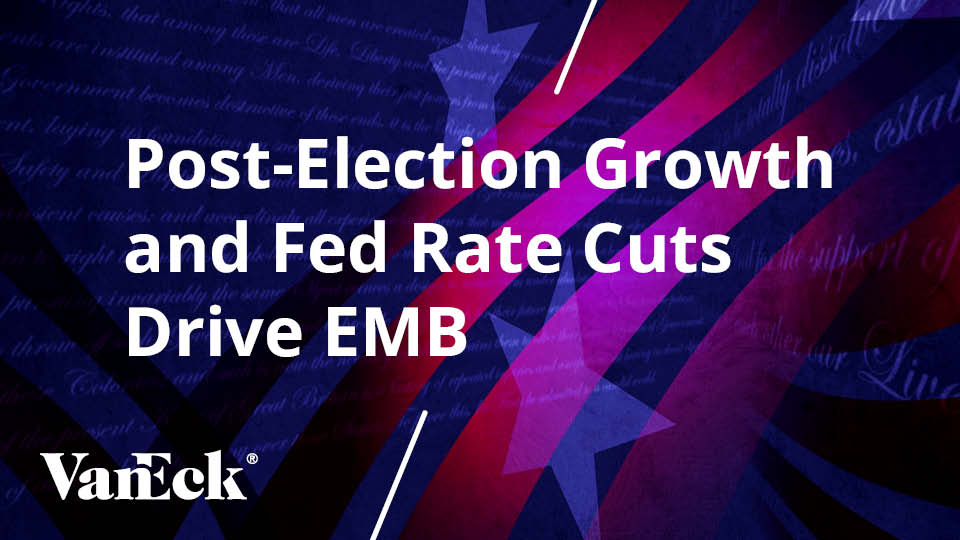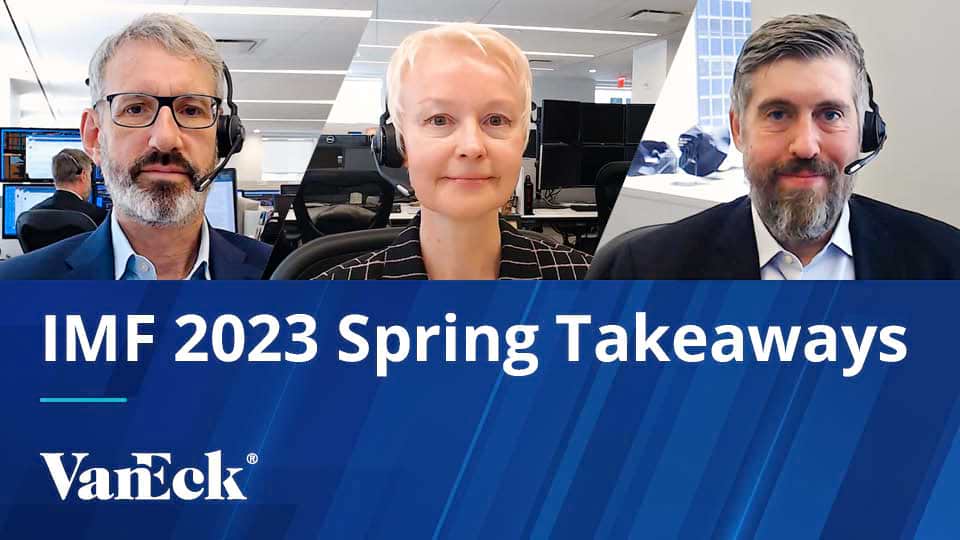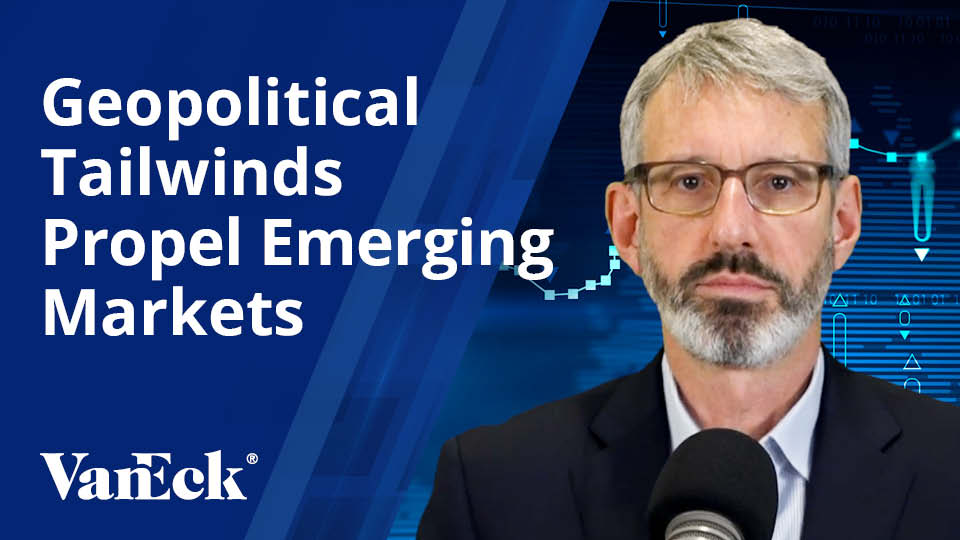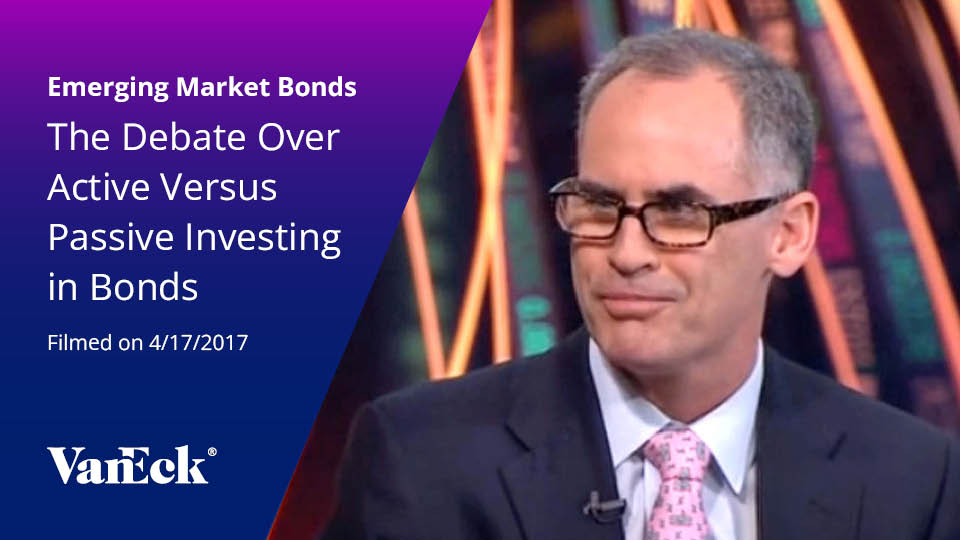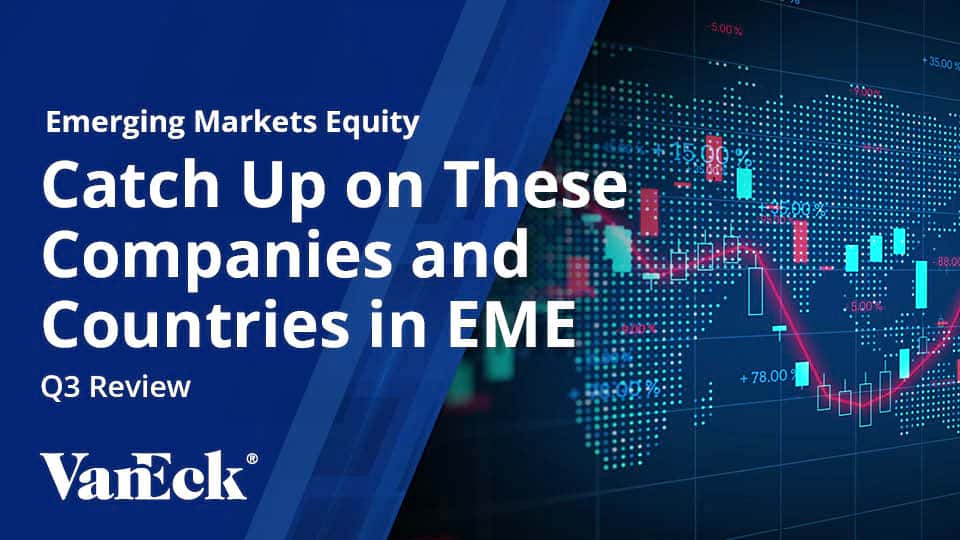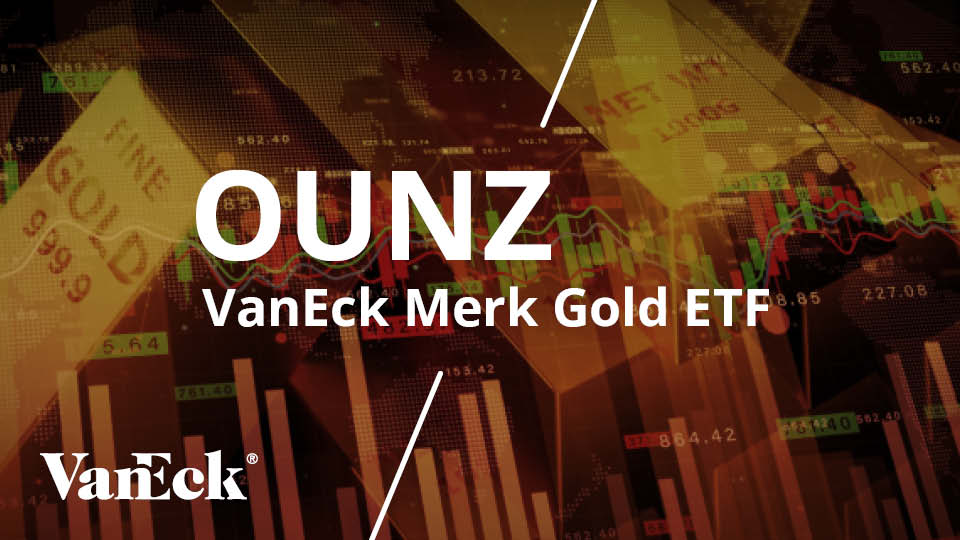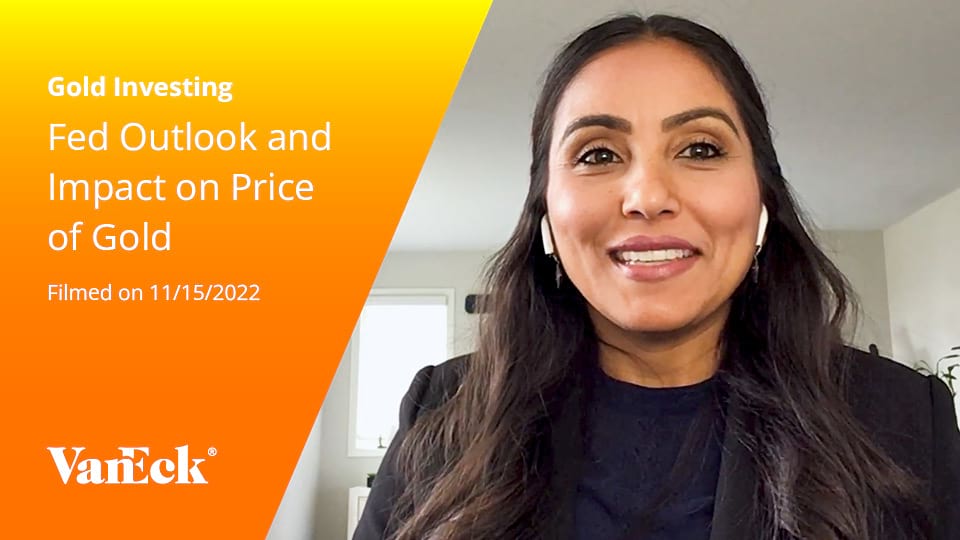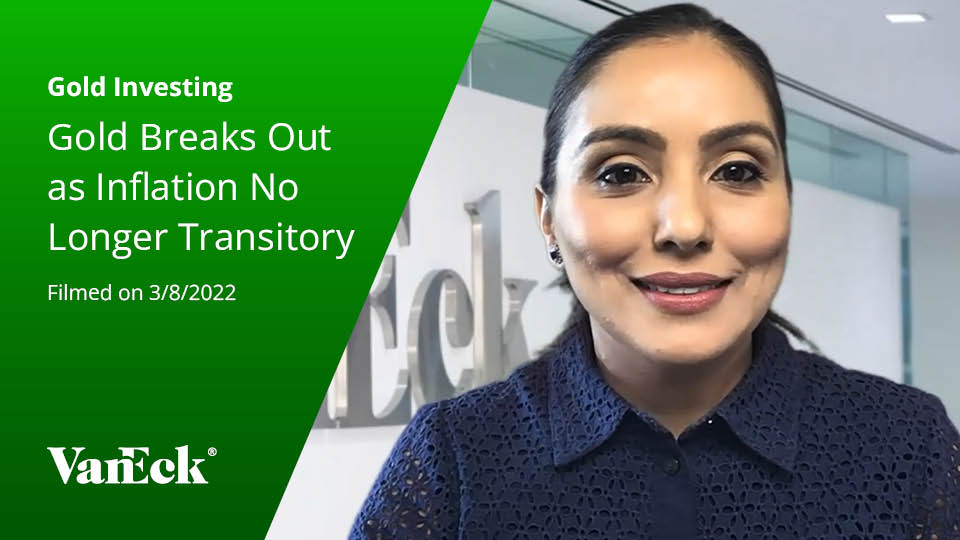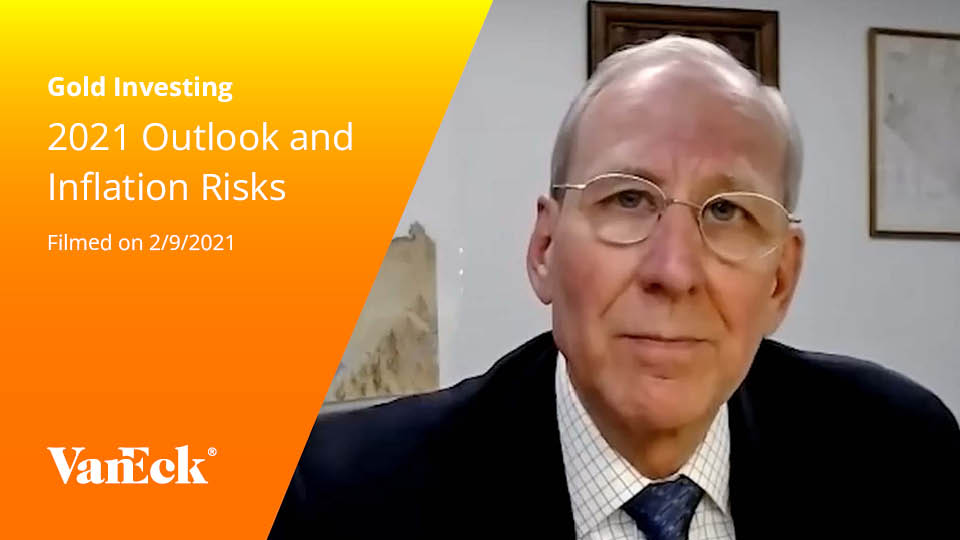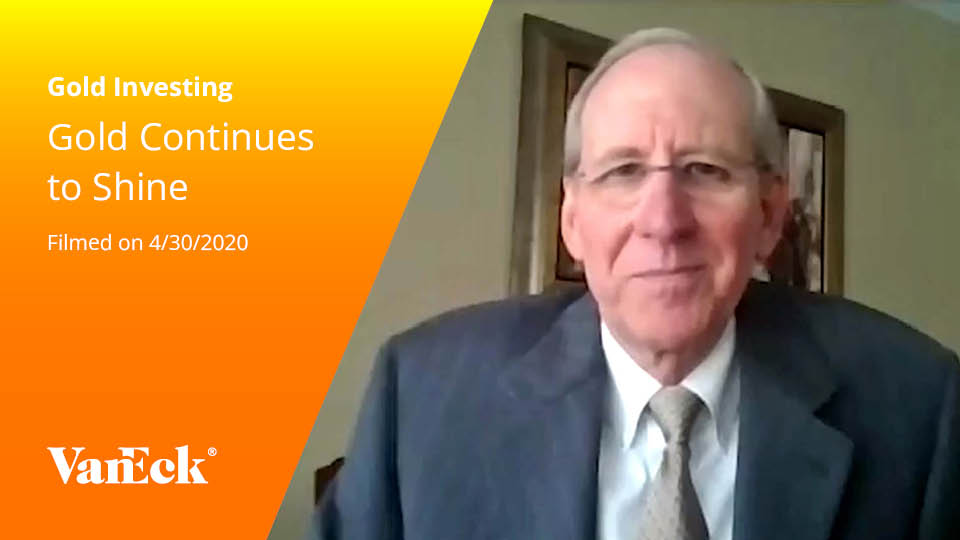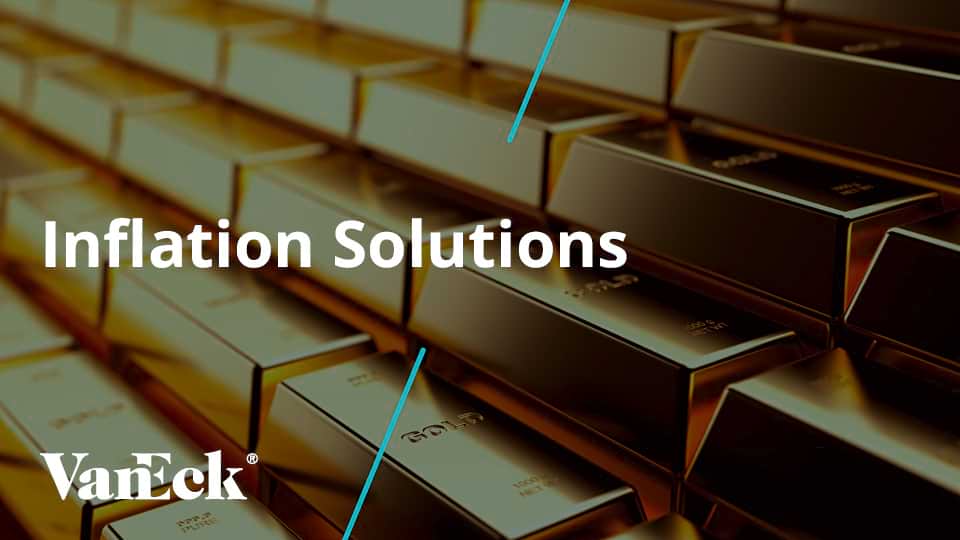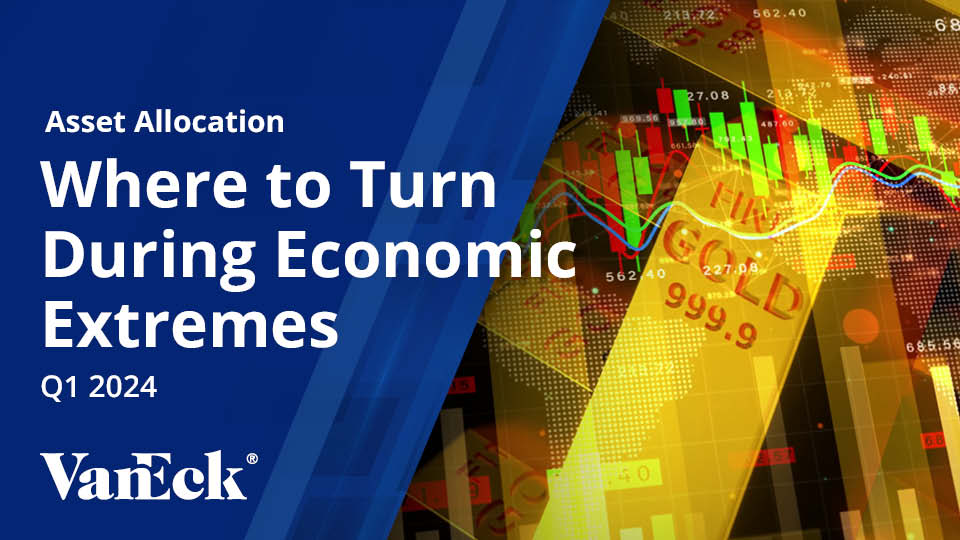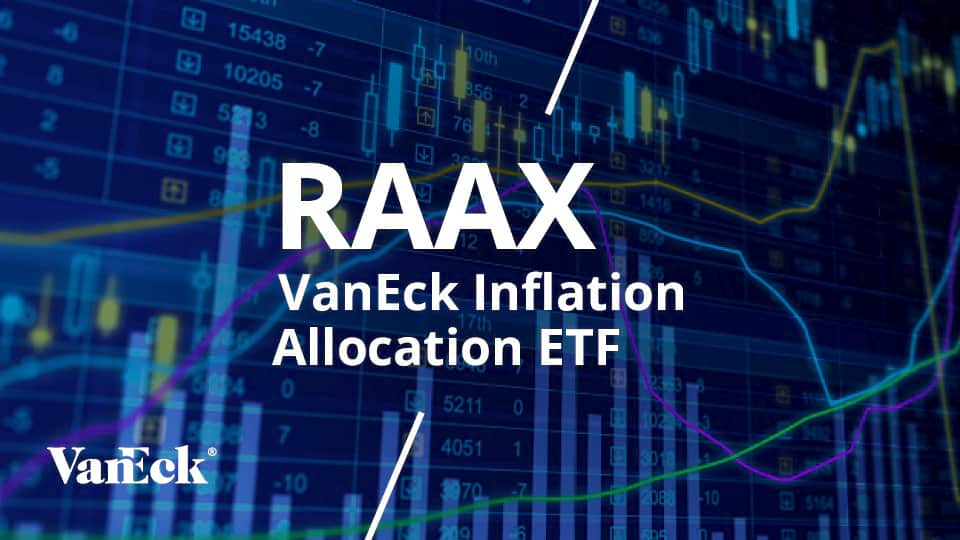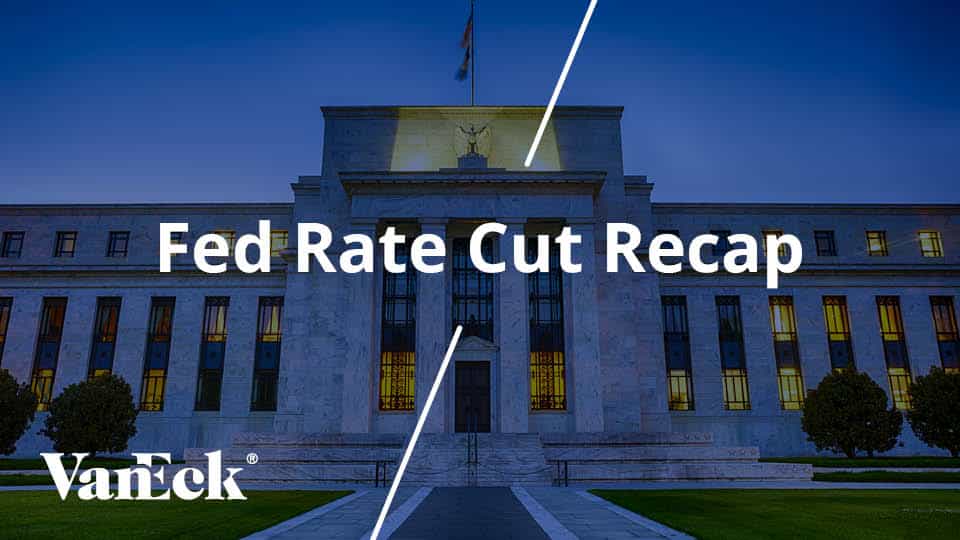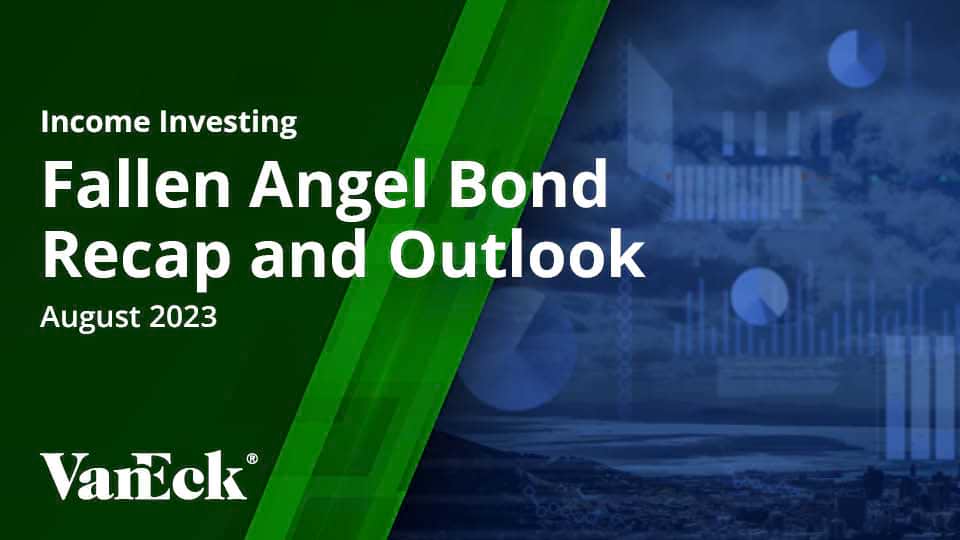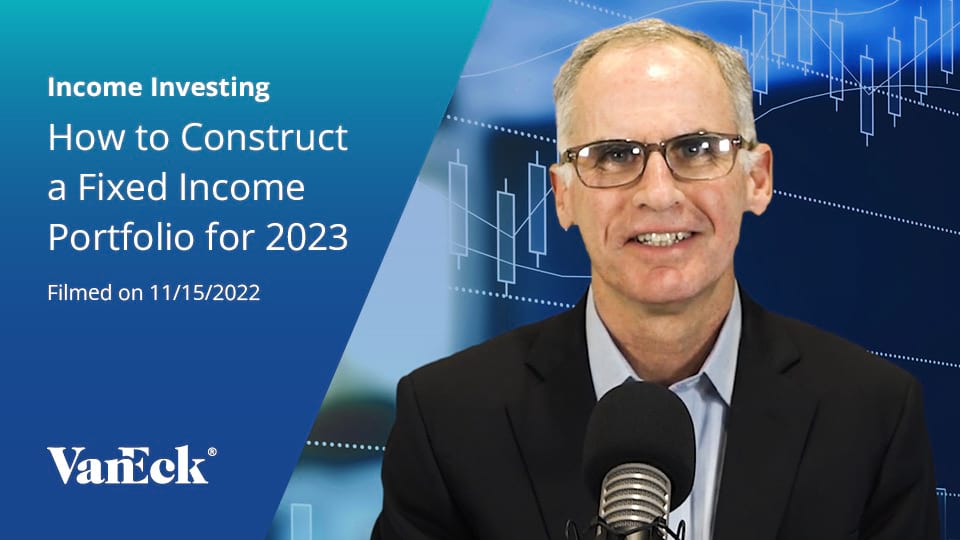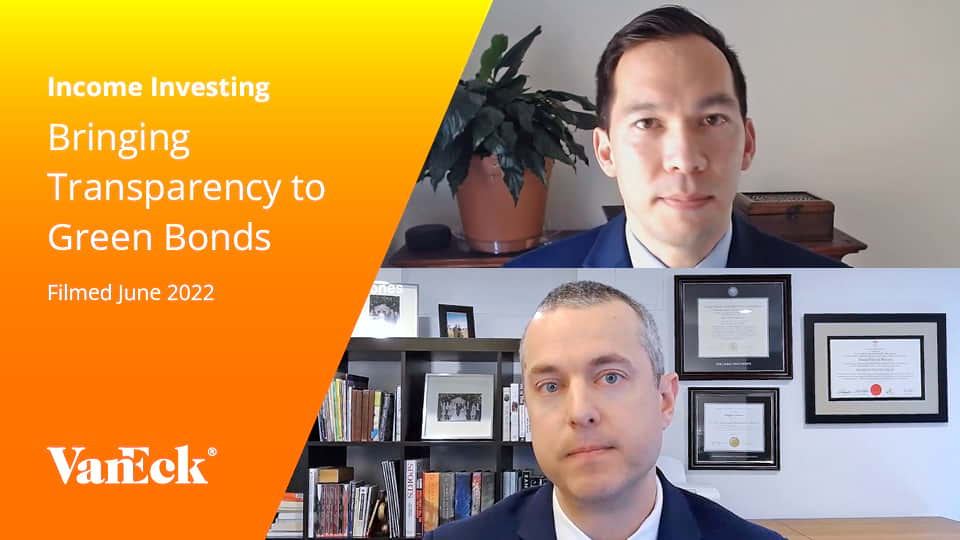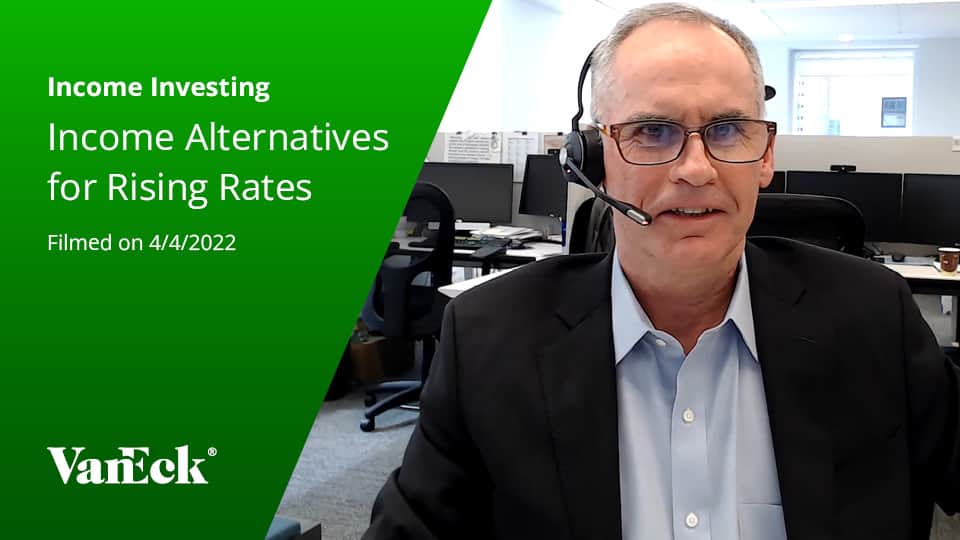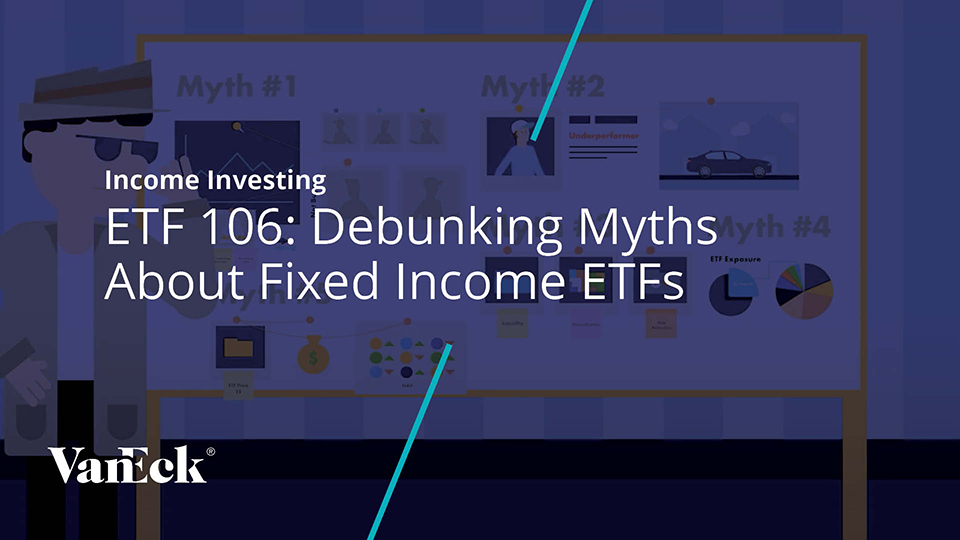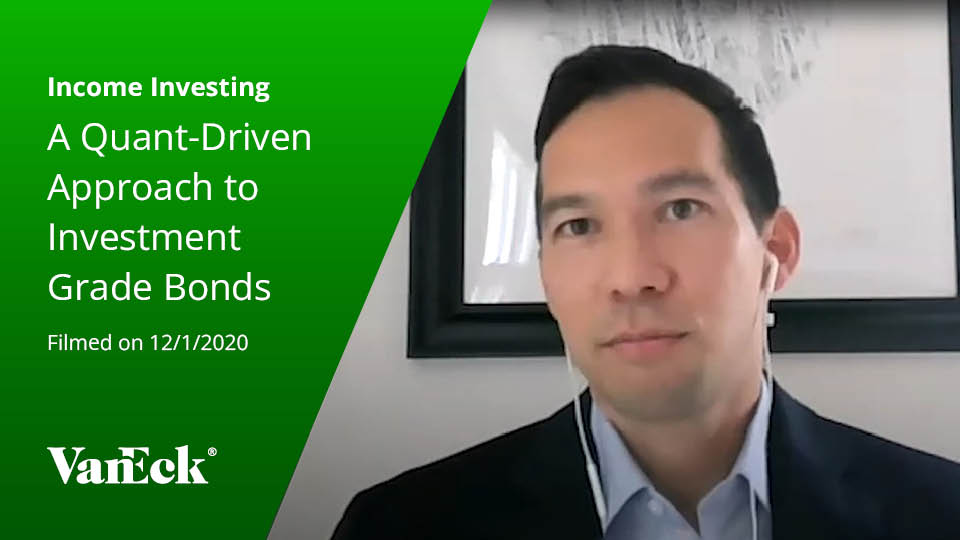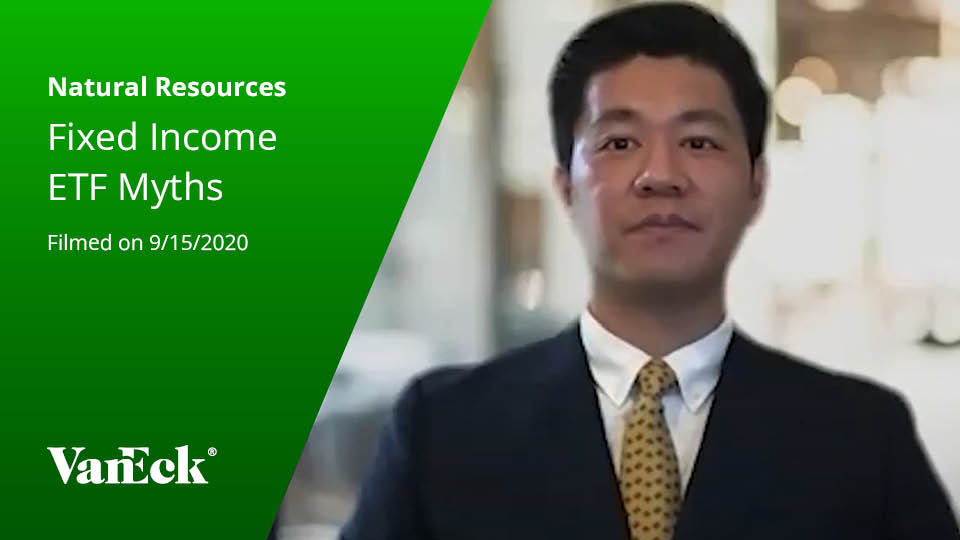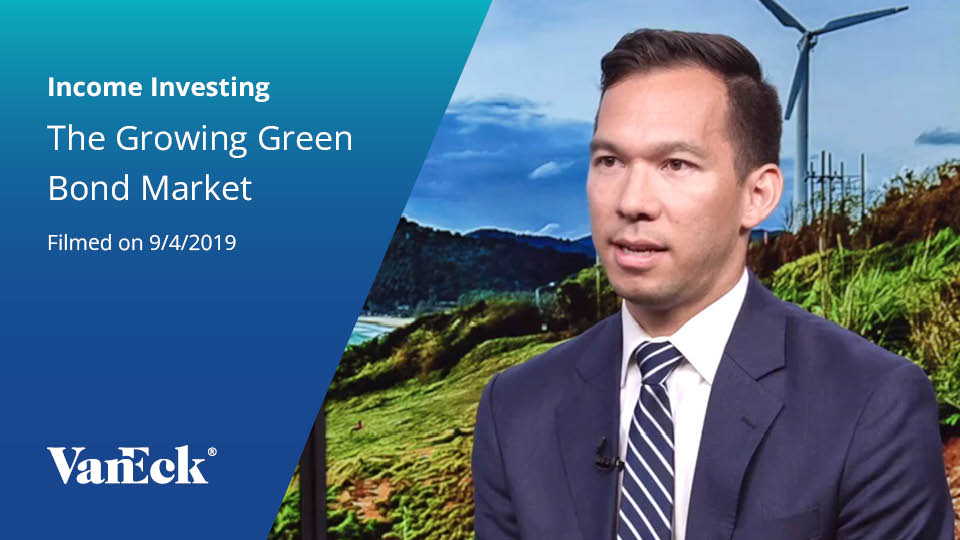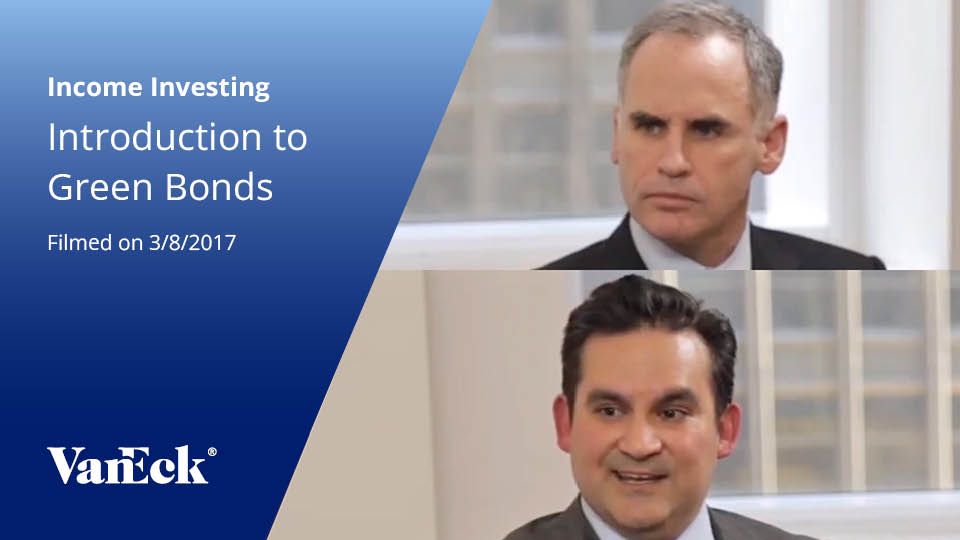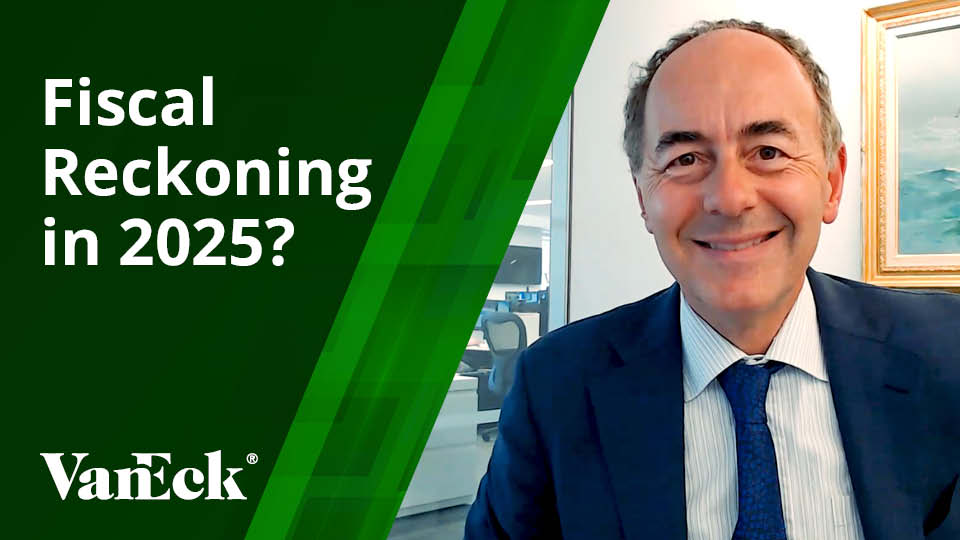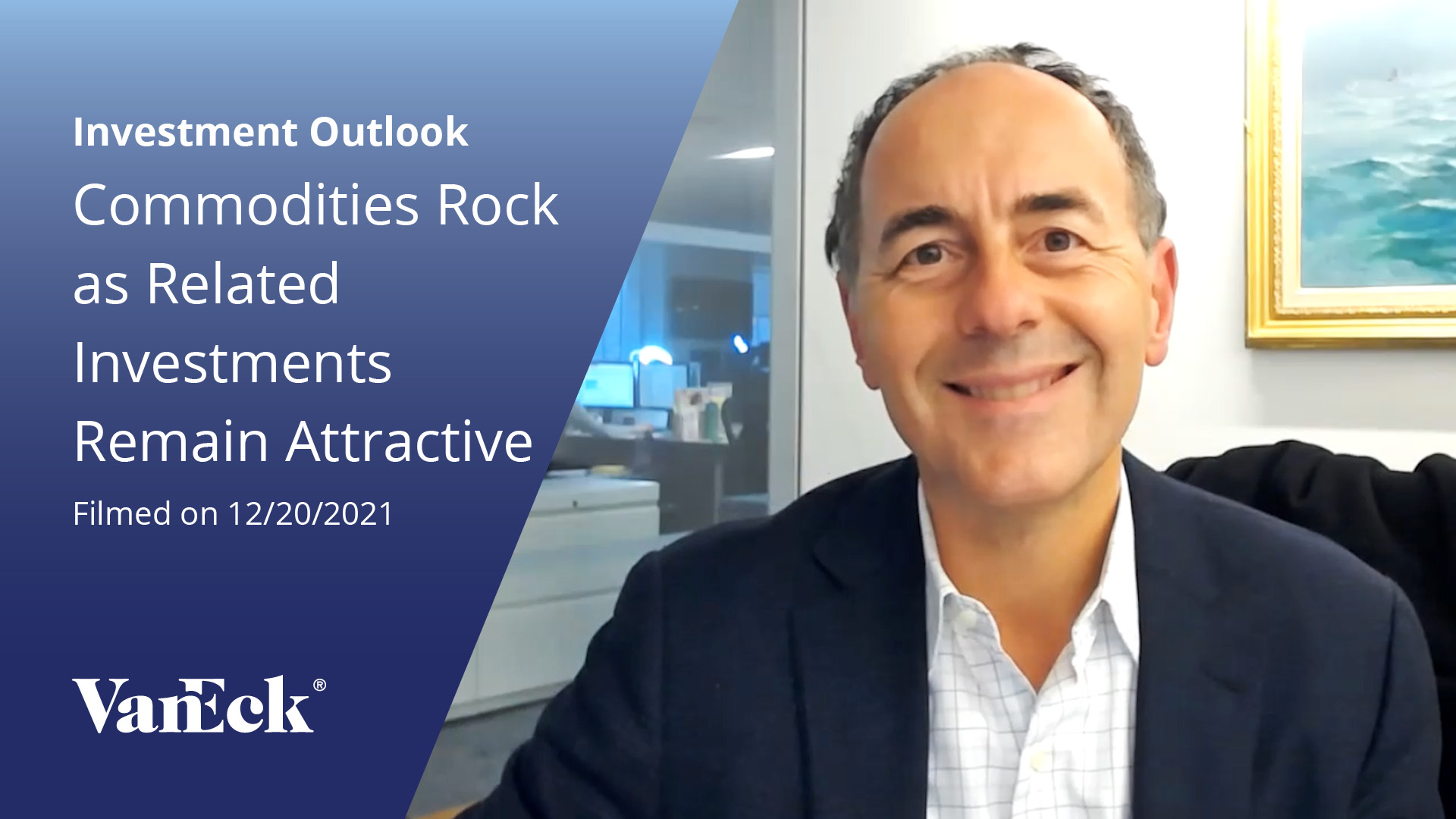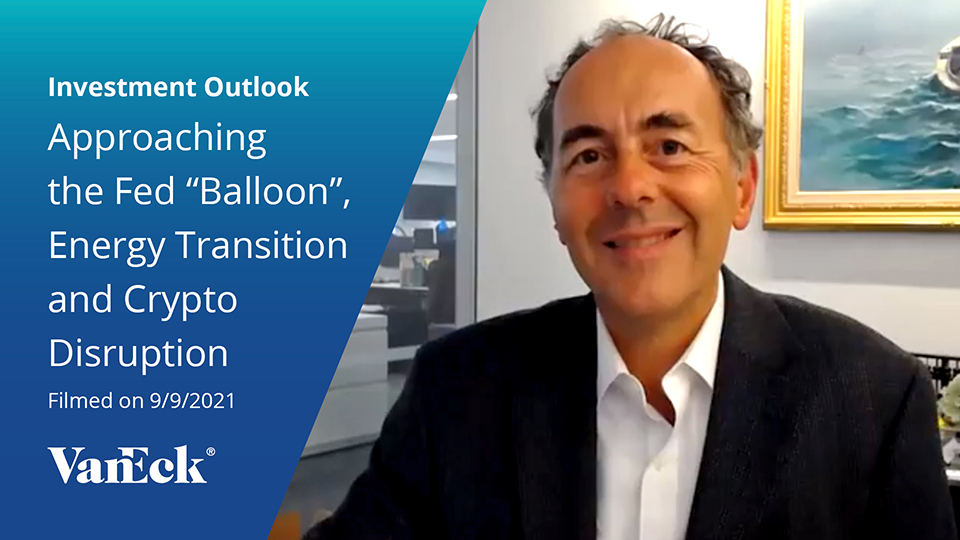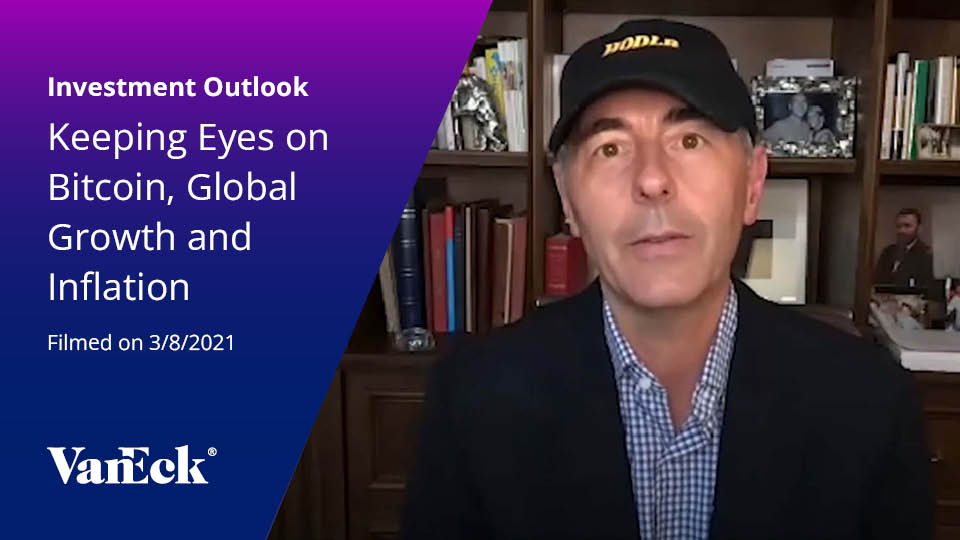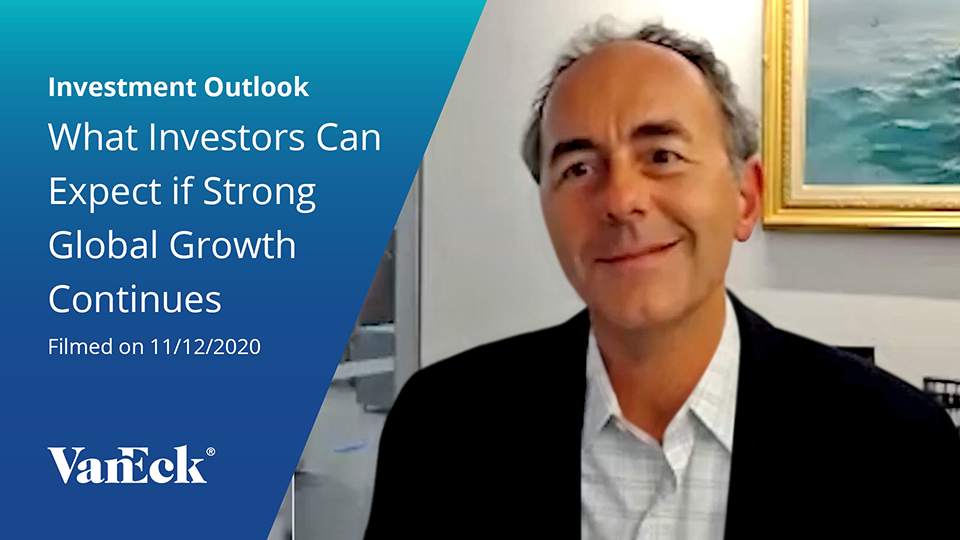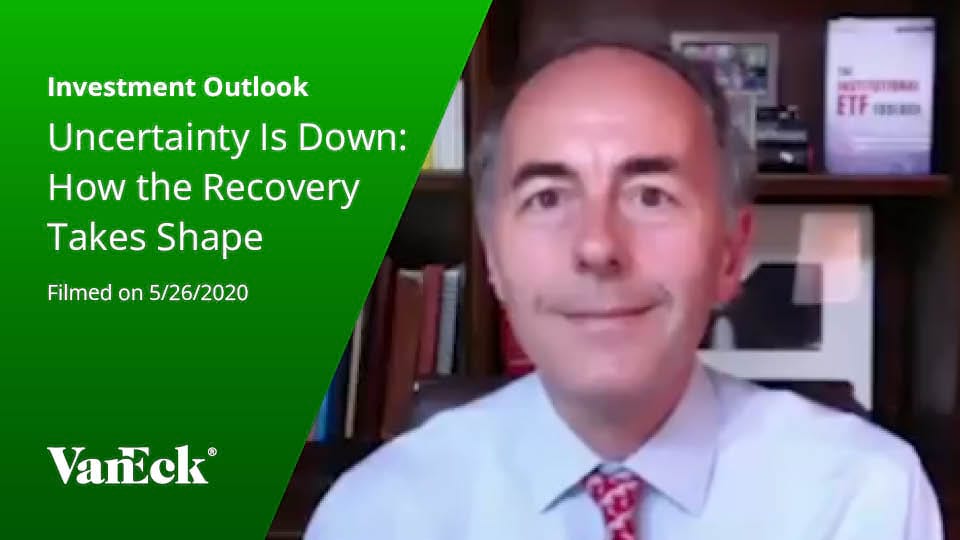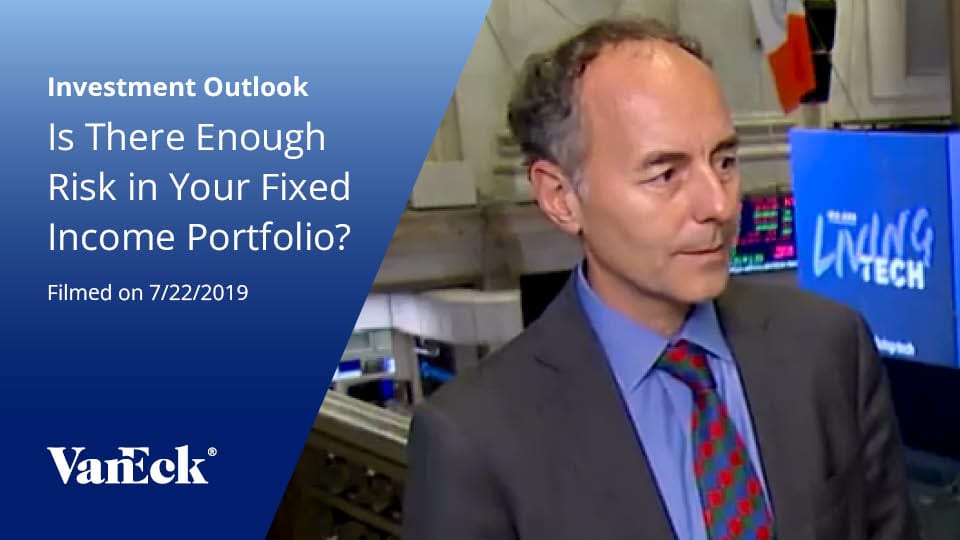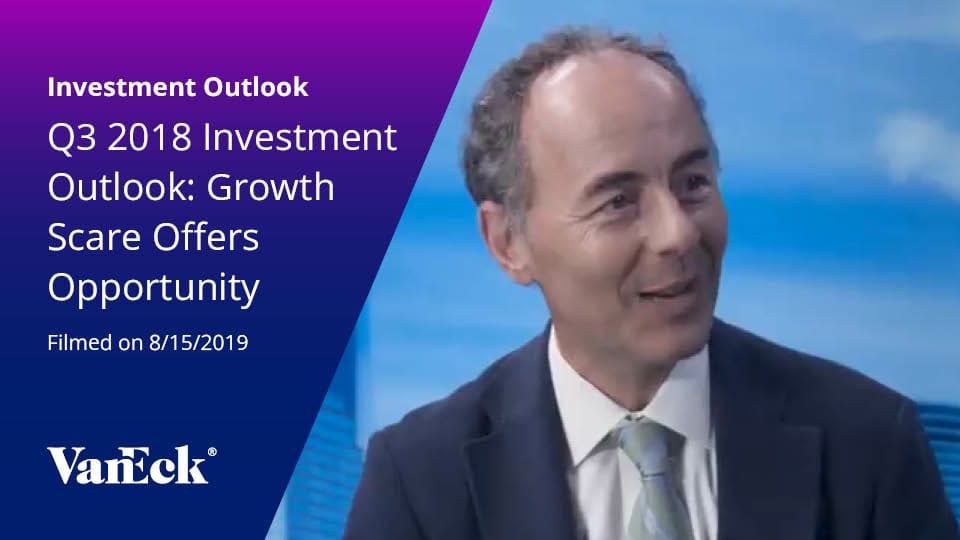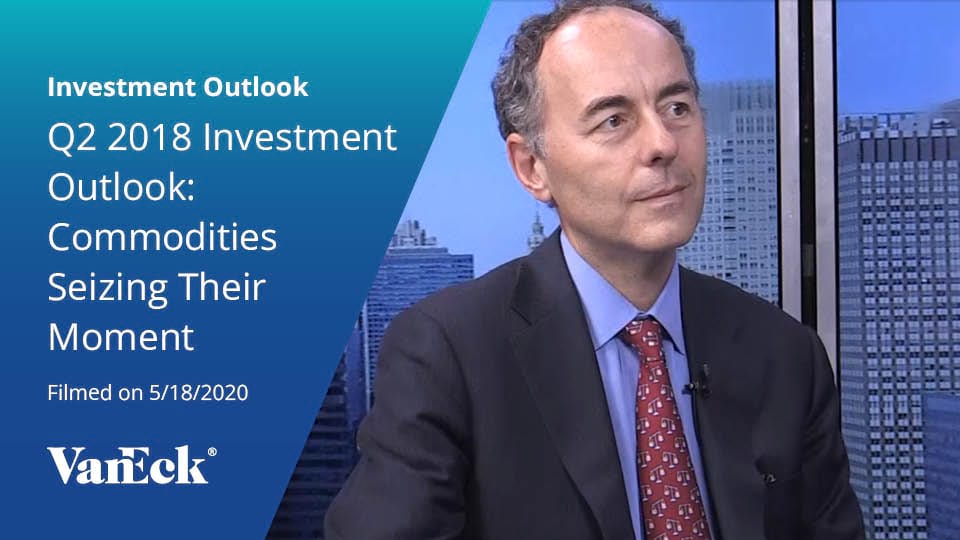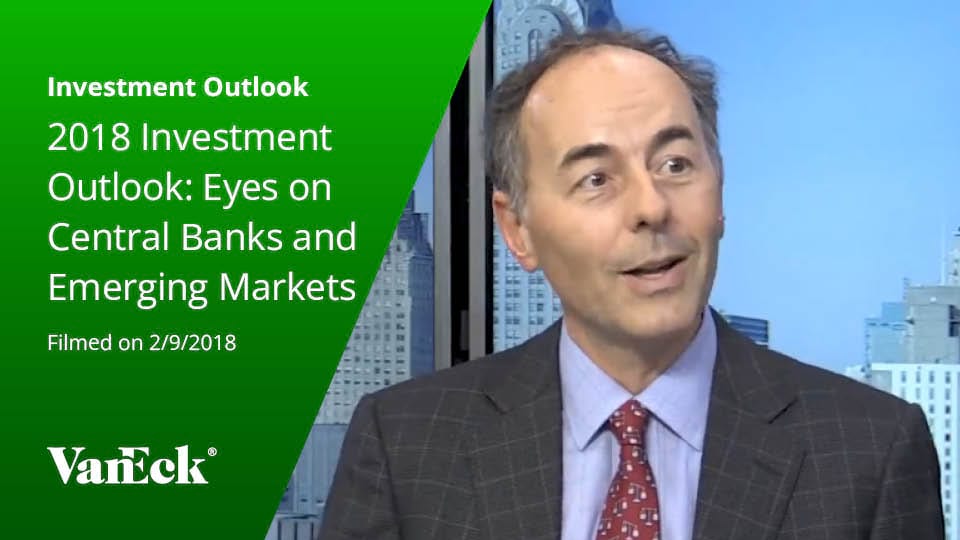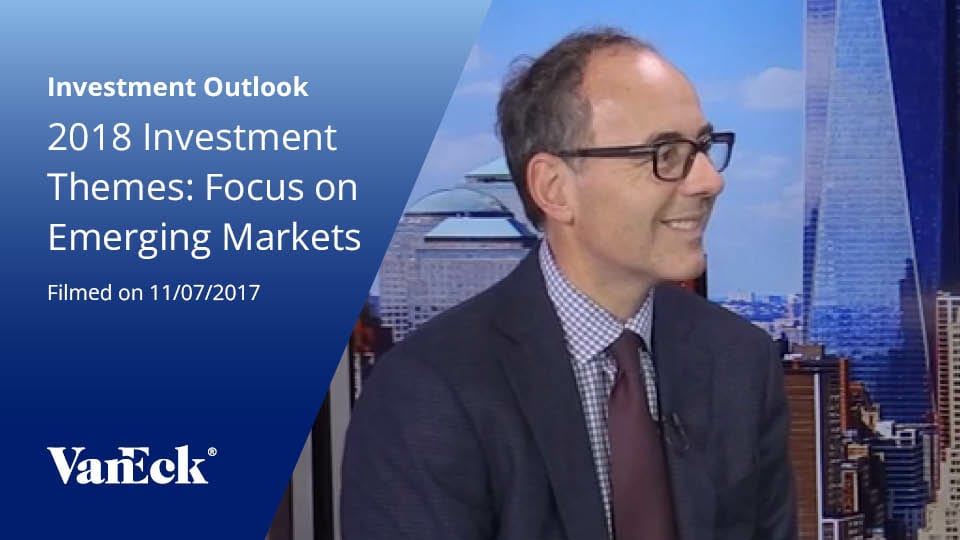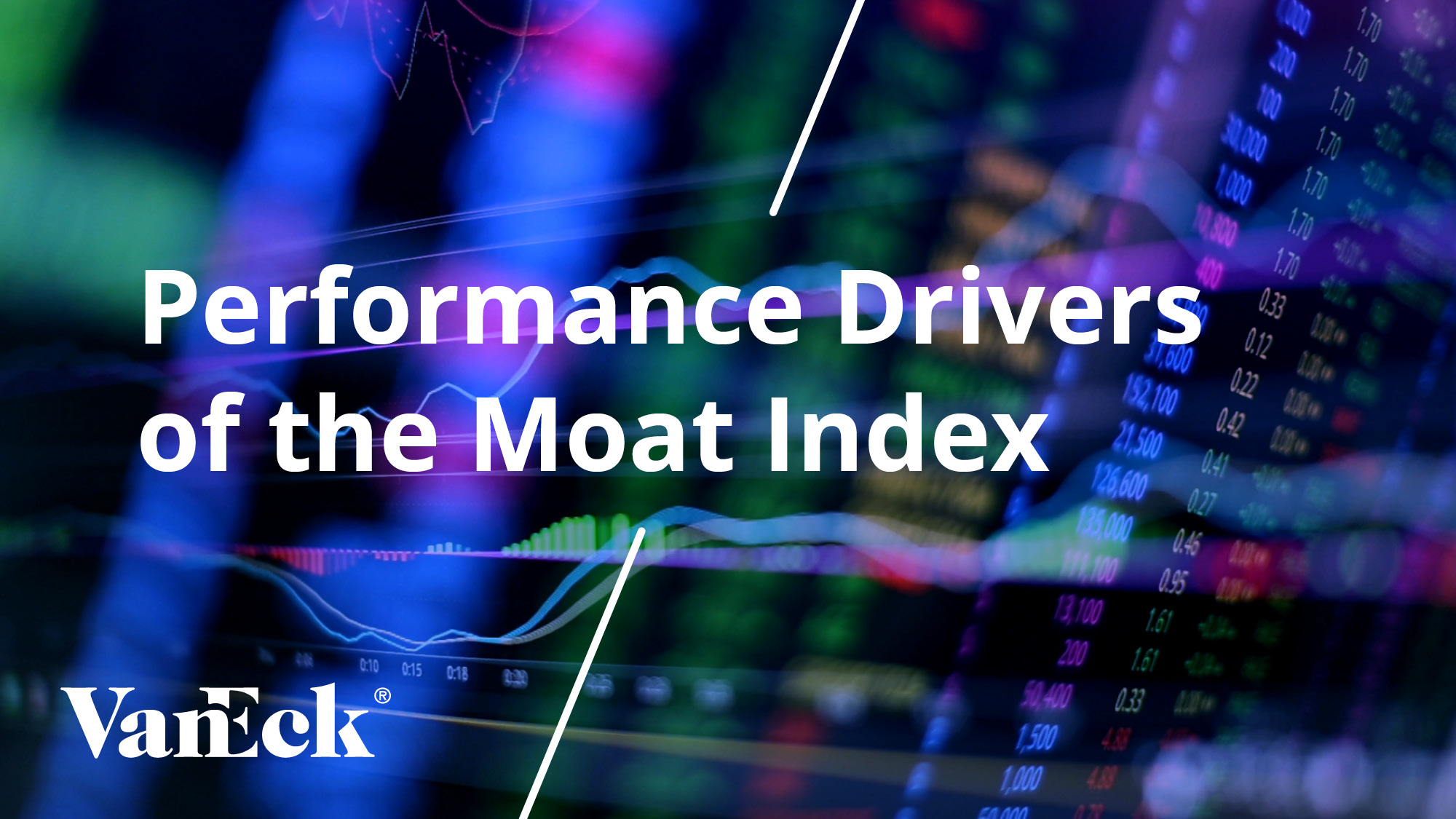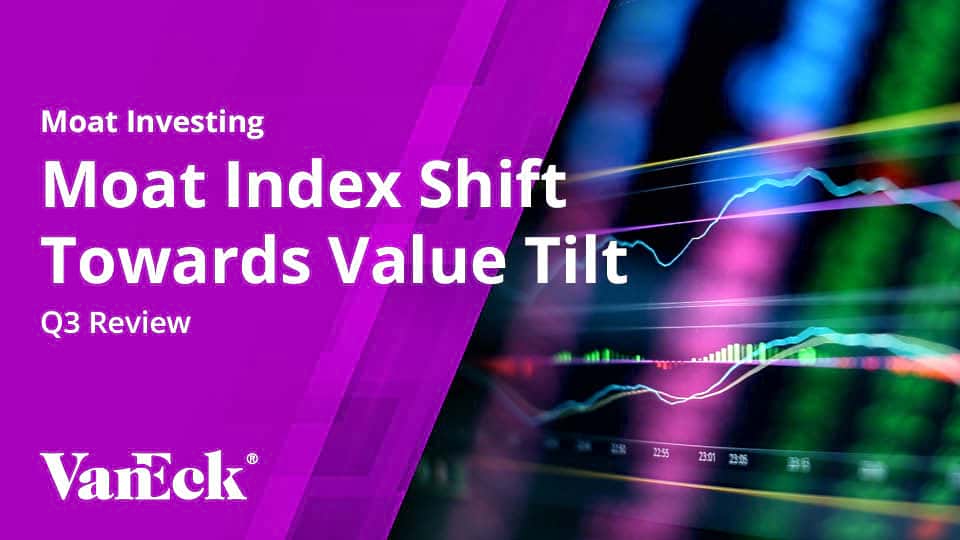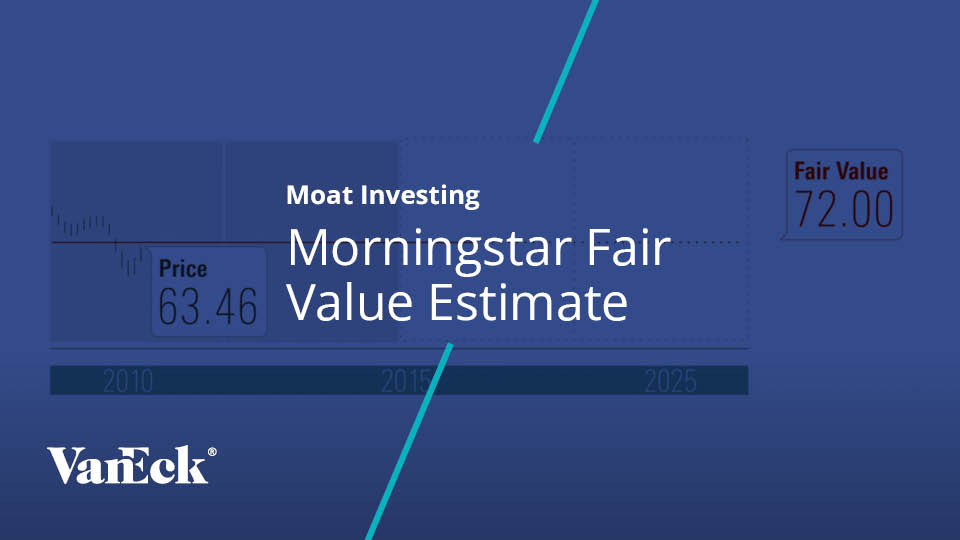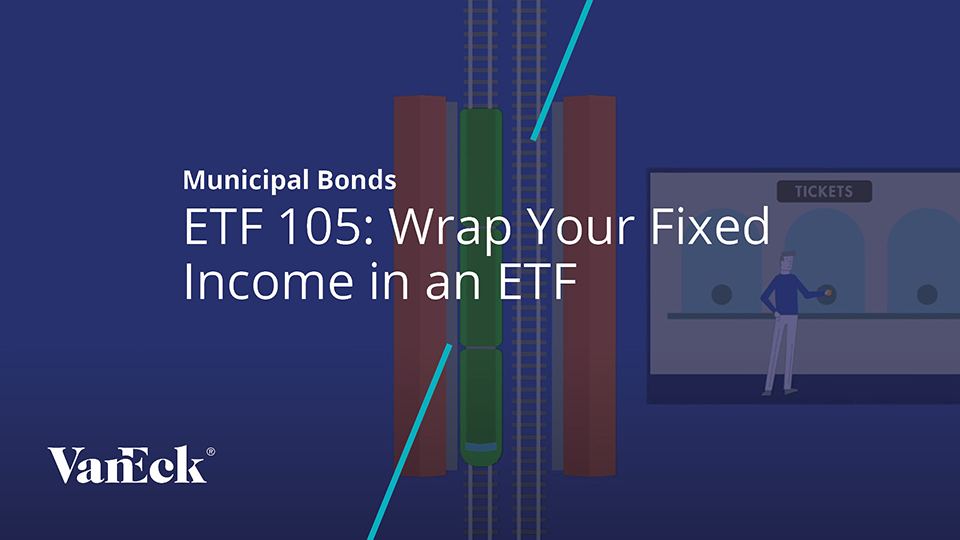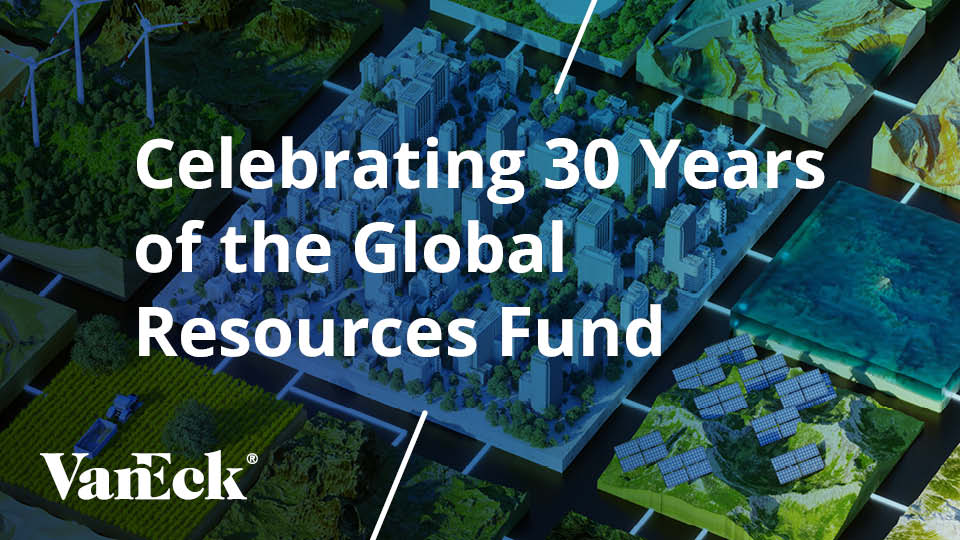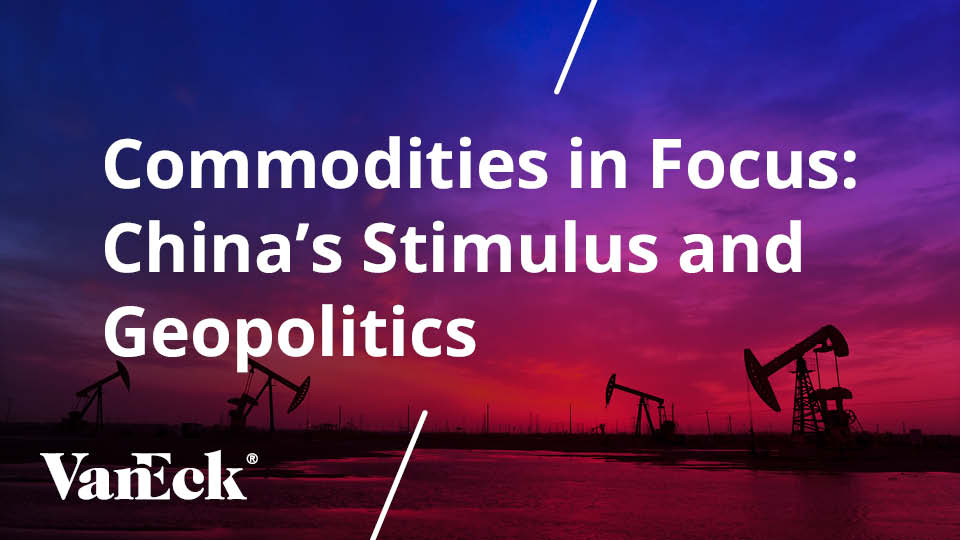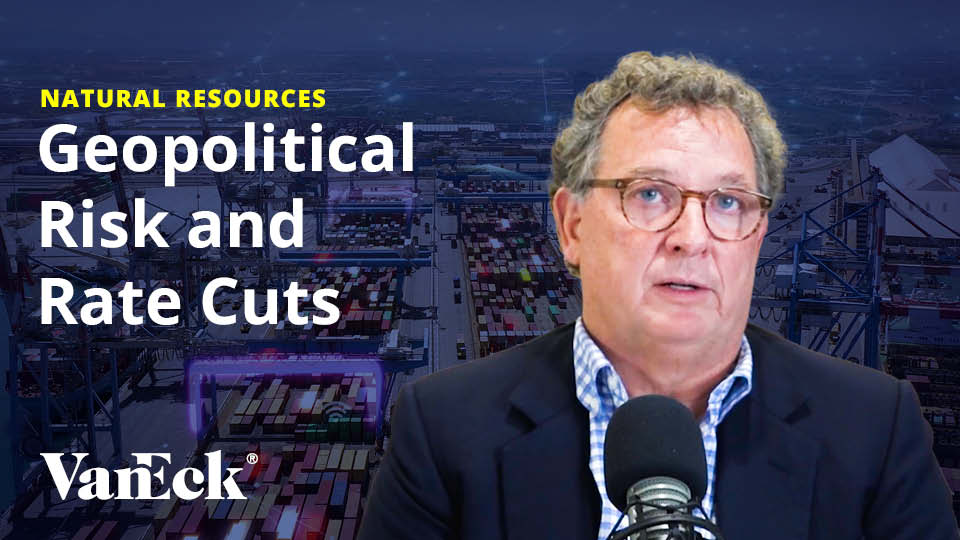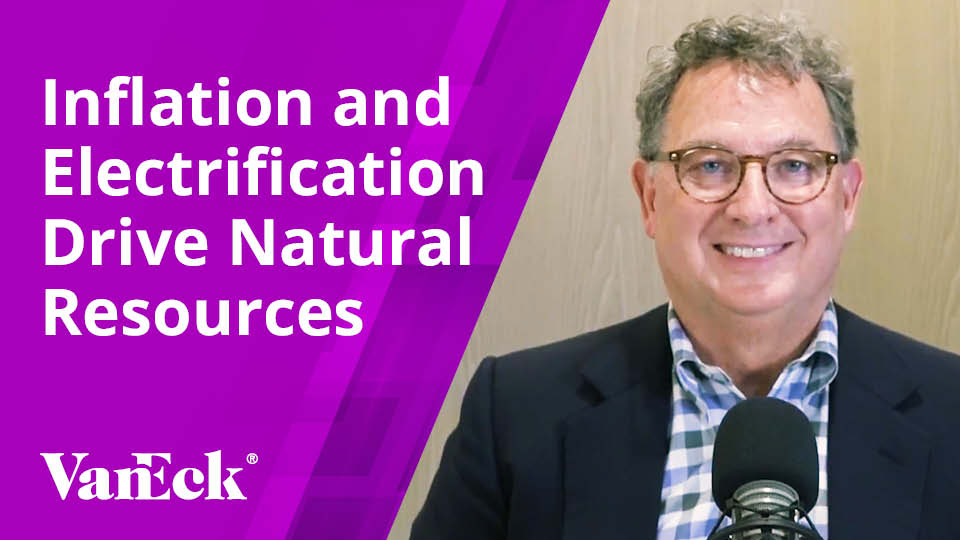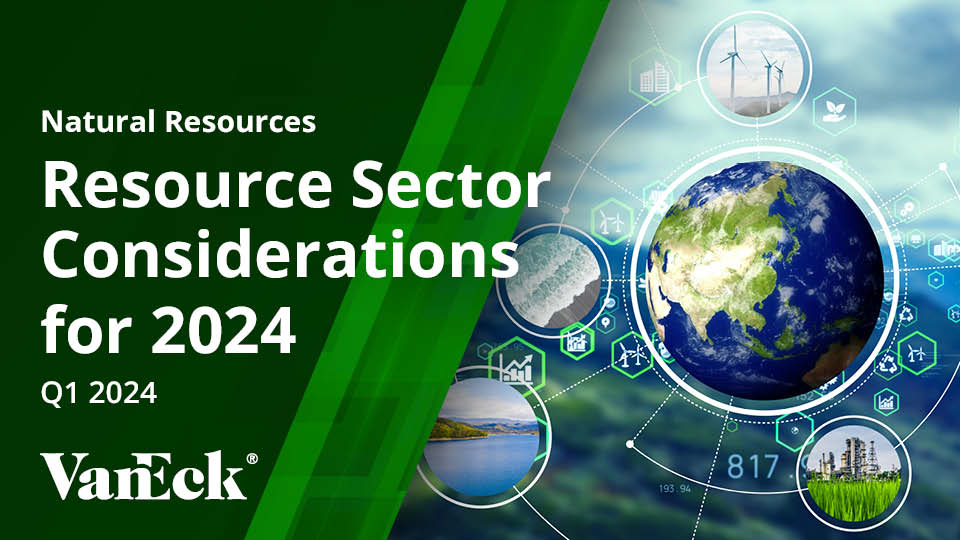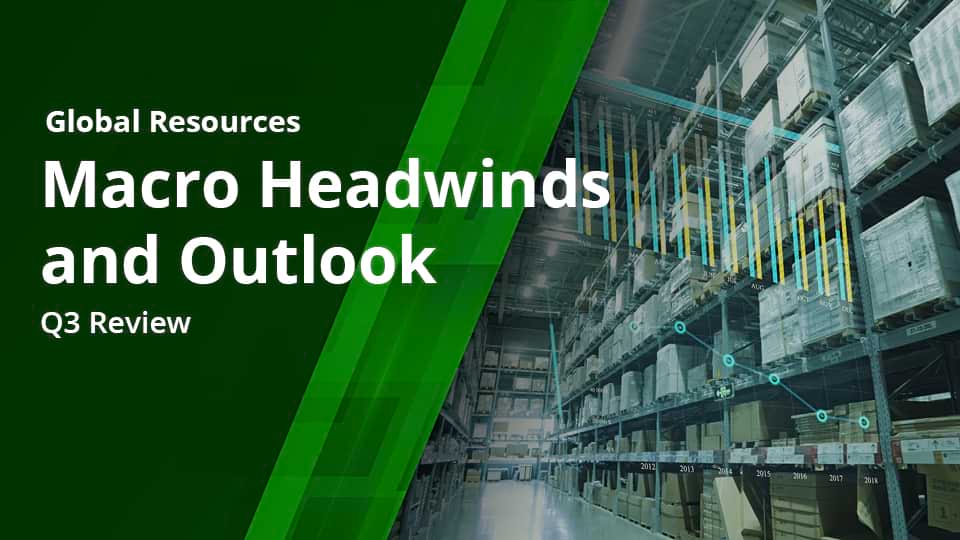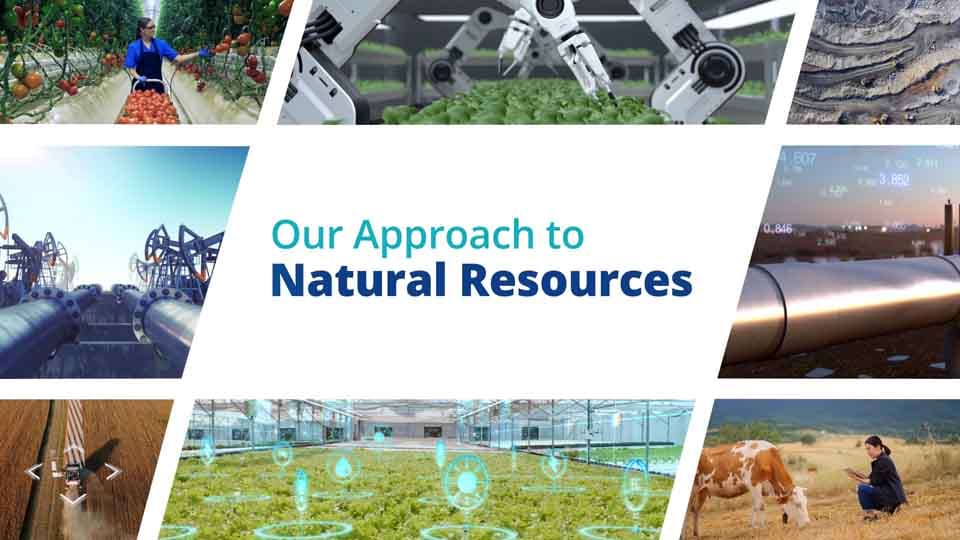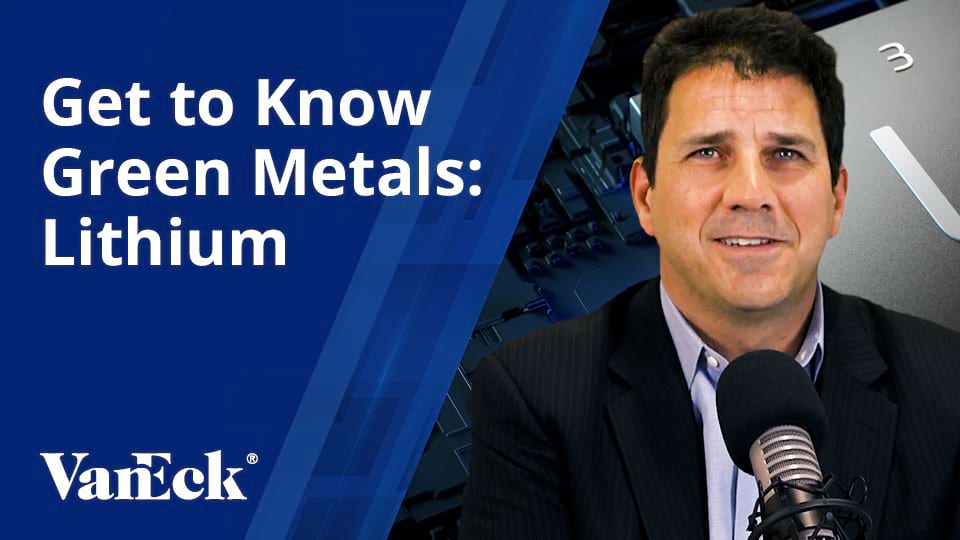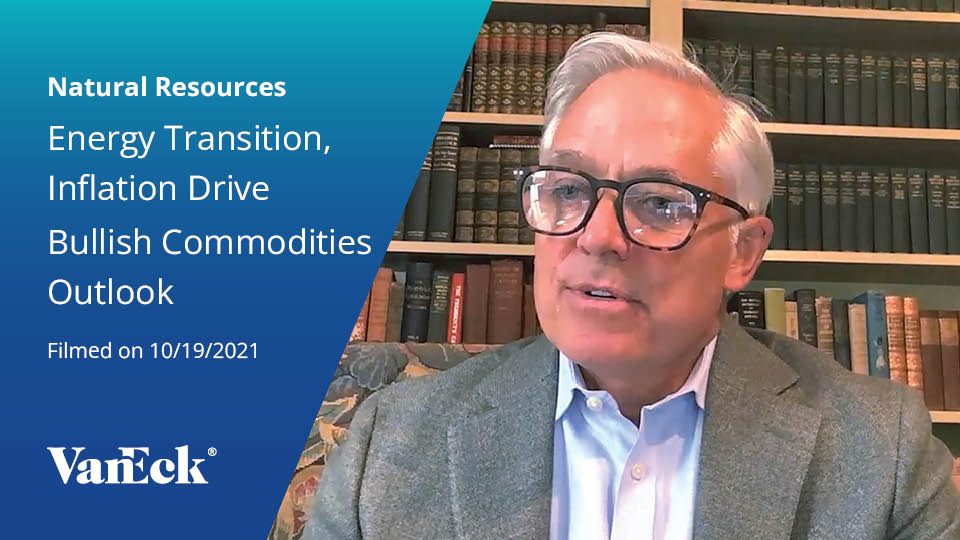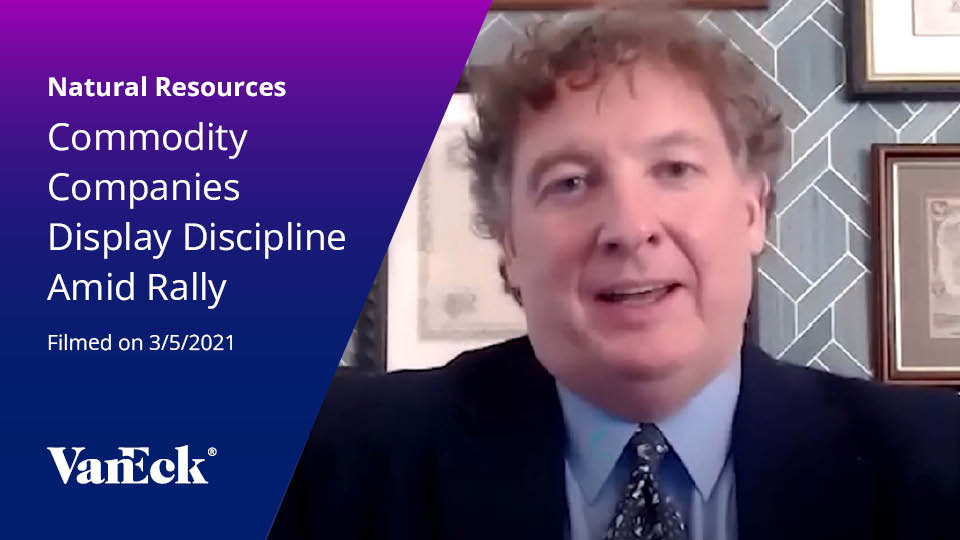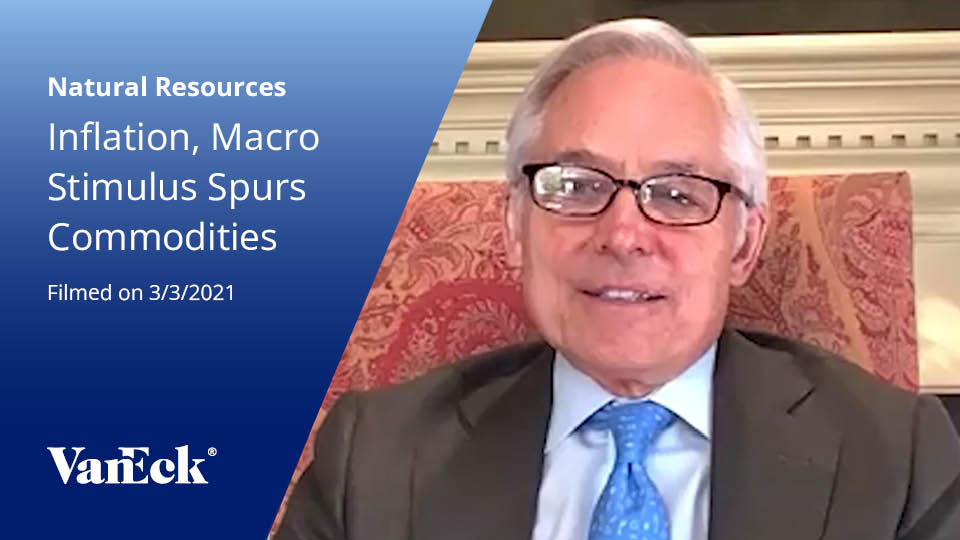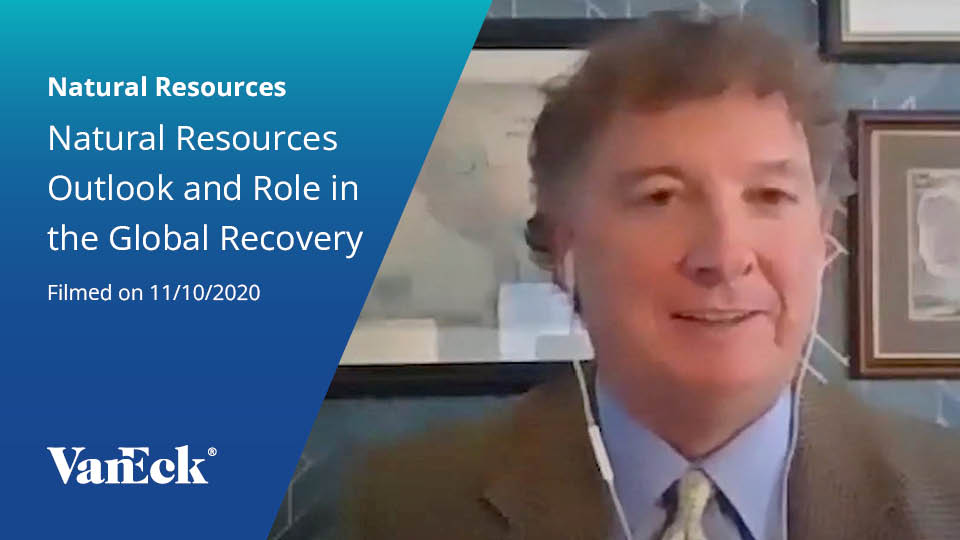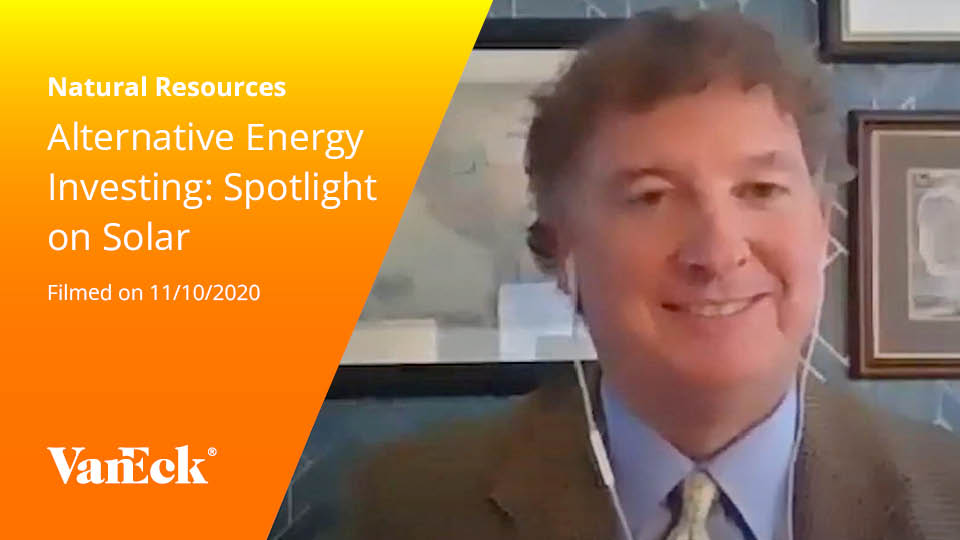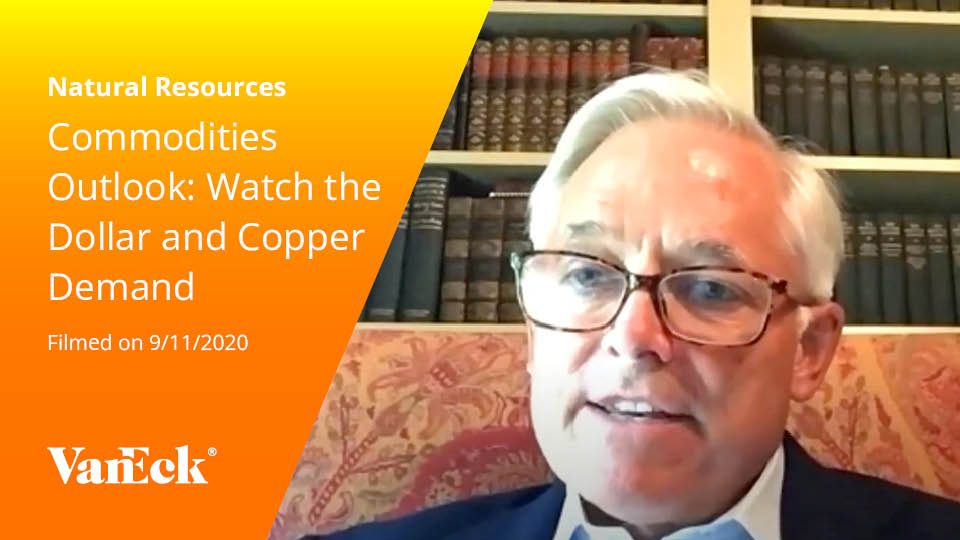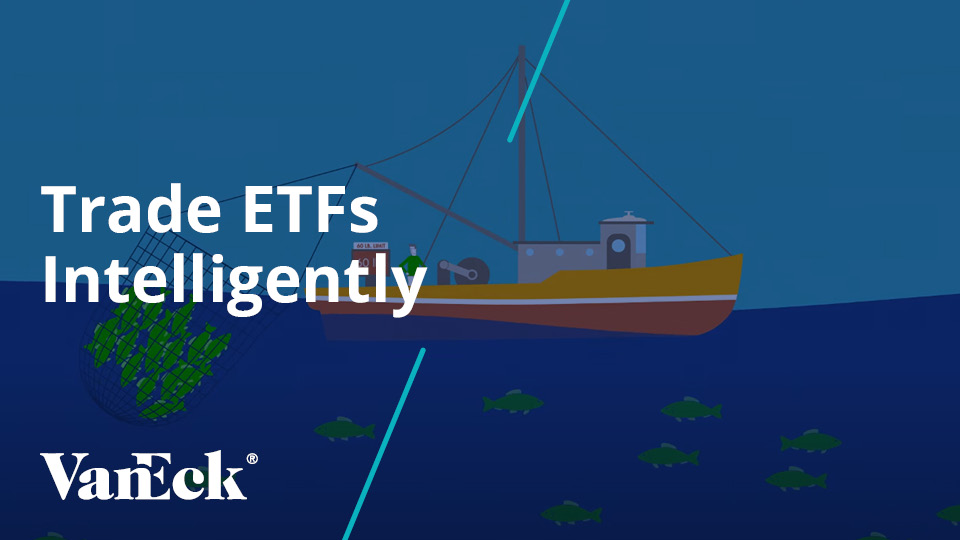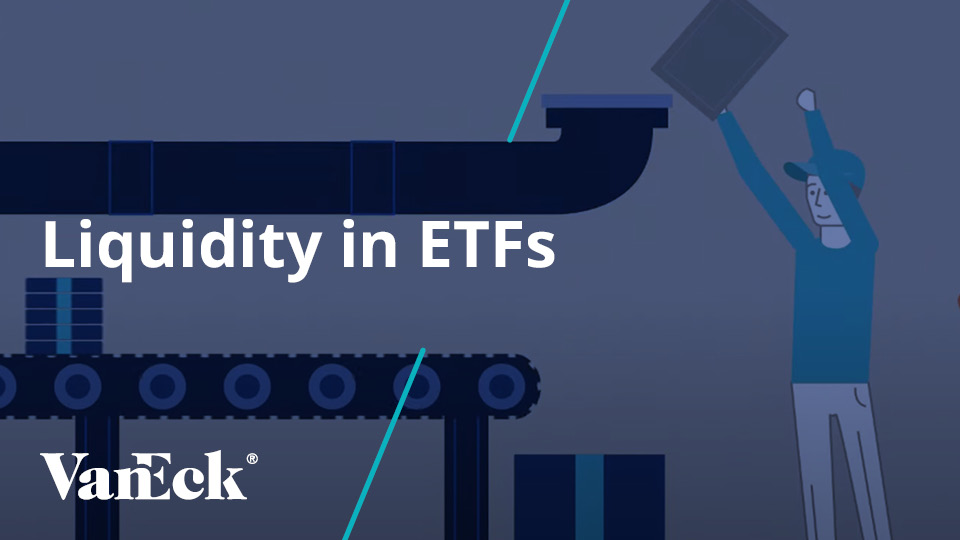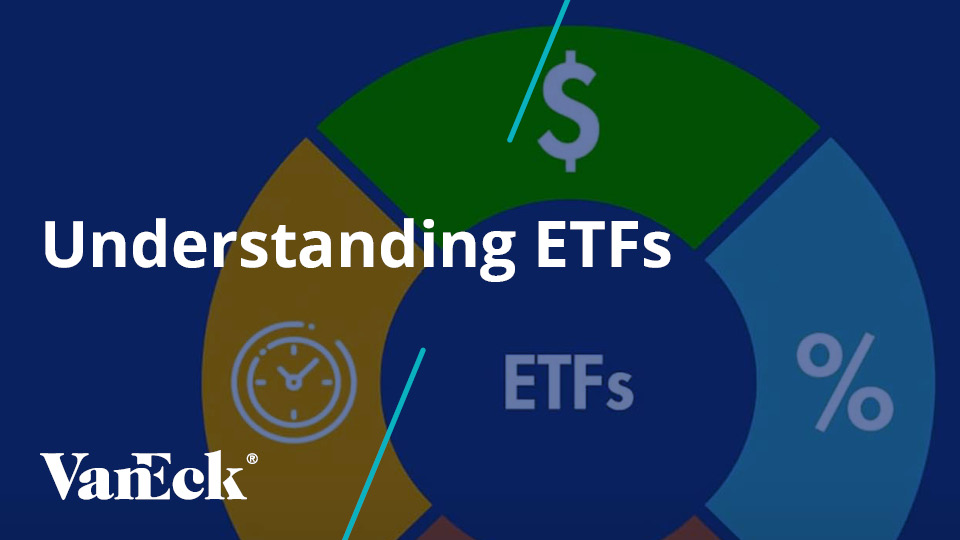Videos

Hi, we're gonna talk about our global natural resources outlook and in particular how tariffs are impacting that overview.
So while clearly still in flux, how are you thinking about tariffs and the potential impact on resource equities? I think broadly, you know, the biggest impact from tariffs is gonna be on global economic growth. And we think that is probably the thing that's impacting commodities the most with regards to the risk and the variability that we're seeing every day.
And that of course if it leads to slower growth, it's going to lead to slower demand for commodities. So as that impacts us, we'll see how that plays out. But again, we've seen this before. It’s probably, if there's a slowdown in economic growth, it's something that all the commodity manufacturers and producers have seen before, recently have seen this before, and we'll be ready to respond to it.
Steel and aluminum for sure is interesting. Depends on kind of where you're located. I think the US steel producers have benefited already from that, even though we haven't seen those tariffs 100 percent yet being applied.
But if you're a US producer, you've already raised the price, you've already charged price, you're seeing the impact of that. Now you're outside, if you're in Canada, if you're in Mexico, perhaps in Europe, you're going to have probably a negative impact. That's steel. On aluminum, it's probably not going to be that big of a deal. We see that in the US, we're pretty self-reliant on aluminum. There's very little that's imported.
And even if it's 10 or 15% of imports get hit with a tariff, it's kind of a small amount on the overall picture. Other commodities, energy is a small amount. We see a 10% hit on Canadian or Mexican energy imports as kind of something that we deal with almost every day, if not more often interday.
But 10% is really, really not that big a deal. We've already seen prices come down, say, 15% since the inauguration of the president. And you see the impact in terms of well cost or the cost overall, the overall industry. It's just that it's a matter of percentage points. And again, something that we deal with very easily. Probably the biggest impact is going to be on the ag and ag products side. That's still yet to be seen. we have tariffs on imported goods from China. They have retaliatory reciprocal tariffs on ag products. That's probably going to impact US farmers quite a bit. Yet to be seen. We don't see it in the data yet, but it's likely and it's worrisome for them.
Have I really seen any changes in fundamental outlook because of tariffs? The volatility and the uncertainty certainly sends everybody into a different phase and you need to start scenario planning around that. So we haven't seen any really fundamental changes. But as soon as they I think as soon as the tariffs come into effect and there's some clarity around that, you're going to see some meaningful changes with regards to financial performance. That can be obviously lower and or higher margins in financial outlook. So we'll see what happens, but we haven't seen anything real significant yet.
This is, again, an exogenous event that just layers on top of many, many negative headwinds facing the commodity industry. In fact, probably, you put all of them together, the biggest negative headwind, set of negative headwinds that I've seen in my career.
You know just again tariffs you think about Ukraine and Russia you think about the Middle East the Houthis Iran Venezuela OPEC plus you put all that together and that's you know, that's a that's a pretty tough outlook for commodities and energy in particular but on the other hand you have continued and somewhat relentless incentives and stimulus coming out of China. You now have a new set of stimulus programs coming out of Europe, and maybe there's the economic downturn, or there isn't an economic downturn, or it's not as bad as people think it's going to be. And you put all that together, and you go, well, it's pretty resilient with regards to commodities. And we're seeing that in just about every commodity price, except for maybe crude, which you could say has reacted before a tariff risk.
You know the commodity prices are actually pretty strong you have you know you have very strong copper prices you have of course record high gold prices you look at even you know soft commodities agricultural commodities you know they're doing okay they're not doing great you know but they're doing okay so it's the resilience in front of or in the face of all this negative headwind is pretty impressive which relates back to you know the overall supply picture.
For most commodities which is as we talked about many times is quite tight. I think in in the face of the uncertainty that sits there with tariffs were still you know Really looking at some of the long-term value creating stick, you know stories that sit out there instead of being too incredibly tactical where we're really somewhat tactical I would say is you know trying to get away from the oil exposure, which isn't entirely terror related And putting more towards natural gas us natural gas And then we've added a little bit of steel exposure so you could you could call that as tactical but also there's underlying, you know idiosyncratic reasons for those positions.
IMPORTANT DISCLOSURE
This is not an offer to buy or sell, or a recommendation to buy or sell any of the securities, financial instruments or digital assets mentioned herein. The information presented does not involve the rendering of personalized investment, financial, legal, tax advice, or any call to action. Certain statements contained herein may constitute projections, forecasts and other forward-looking statements, which do not reflect actual results, are for illustrative purposes only, are valid as of the date of this communication, and are subject to change without notice. Actual future performance of any assets or industries mentioned are unknown. Information provided by third party sources are believed to be reliable and have not been independently verified for accuracy or completeness and cannot be guaranteed. VanEck does not guarantee the accuracy of third party data. The information herein represents the opinion of the author(s), but not necessarily those of VanEck or its other employees.
Hard assets investments are subject to risks associated with real estate, precious metals, natural resources and commodities and events related to these industries, foreign investments, illiquidity, credit, interest rate fluctuations, inflation, leverage, and non-diversification.
All investing is subject to risk, including the possible loss of the money you invest. As with any investment strategy, there is no guarantee that investment objectives will be met and investors may lose money. Diversification does not ensure a profit or protect against a loss in a declining market. Past performance is no guarantee of future results.
No part of this material may be reproduced in any form, or referred to in any other publication, without express written permission of Van Eck Associates Corporation.
© 2024 Van Eck Associates Corporation.











































